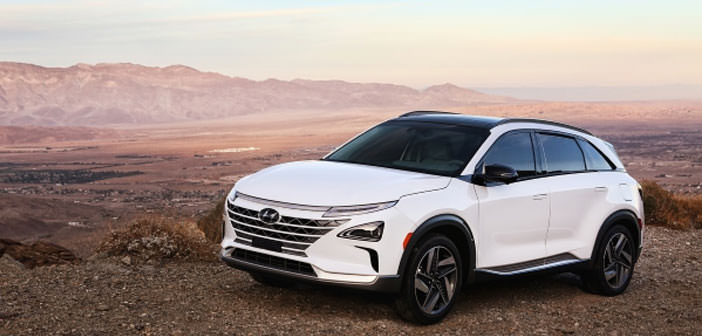Hyundai, the first self-driving car test with hydrogen fuel
Hyundai has completed its first official level 4 self-driving test in Korea, covering the 190 km separating the cities of Seoul and Pyeongchang.
For the moment, it is simply a prototype, but Hyundai’s declared goal is to bring the assisted driving level 4 to the road in 2021. For the first time, in the meantime, a fleet of 5 cars with 4 level autonomous driving traveled 190 kilometers, those that separate Seoul and Pyeongchang, also home to the Winter Olympics that will start on February 8th.
Of the five prototypes, three were Nexo and two Genesis G80. Not only, Nexo is the hydrogen SUV of the Korean company, but it represents an important look towards the future at 360 degrees, regarding design, technology and integration between environment and vehicle. The 5 experimental vehicles implemented the 5G communication technology just to establish an informatic relationship with what surrounded them. A very useful aspect for a self-driving vehicle like this that cannot and must not rely only on the cameras and Lidar sensors with which it is equipped.
This is the first test in the world regarding a hydrogen SUV in total autonomy. Until today, Hyundai limited itself to testing its own technologies on short stretches of road and at very limited speeds. In testing between Seoul and Pyeongchang, on the other hand, the fleet’s vehicles were started by pressing a button and then reaching the destination without the technicians intervening further. The maximum speed reached was 110 km/h.
Autonomous driving has been able to overcome other slower vehicles and manage the entry and exit phases of the motorway. The vehicles have also faced toll booths paying the toll with the Korean Hi-pass wireless system. Another critical issue involved the long tunnels that the five vehicles had to travel, due to the interruption of the GPS signal. But even in this case they got off brilliantly using cameras and sensors on board.
Nexo is not lacking even from the point of view of infotainment, since the Home Connect system allows you to interact with the smart home directly from inside the car, to view the images captured by surveillance cameras and operate the appliances. Do not miss the voice assistant online, the noise reduction system and the monitoring of passengers’ health. With the data on heart rate and mood, the system is able to offer therapeutic services and if necessary, medical assistance via a video call.
Hyundai’s goal is to achieve total autonomy by 2030, the date by which fully autonomous vehicles will hopefully already be in dealerships. Considering that it is the goal of almost all car manufacturers, it seems obvious that the next few years will be able to offer surprising innovations in terms of mobility.

